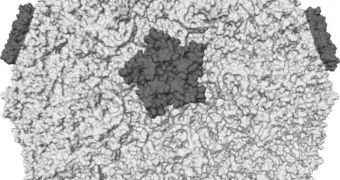A group of researchers from the United Kingdom announce a major discovery in the fight against common cold, that could see the disease finally eradicated once and for all.
The scientists demonstrated that the pathogen can be attacked and destroyed by the immune system after it has penetrated the cellular nucleus, which is something that no one thought possible until now.
Such a research could have immediate and widespread influence on the lives of millions of people, and on the billion-dollar pharmaceutical industry that peddles vaccines and medication against the common cold.
Based on these new conclusions, experts can start work on a new type of antiviral drugs, that would not necessary attack the virus directly, but rather boos the destructive ability of our own immune systems.
Our blood contains cells that are extremely adapt at destroying any sort of pathogen, including cancer and HIV. The issue is that they are not always activated, which is why people lose their lives over diseases that are curable in theory.
The science team behind the new work, which is based at the world-renowned Laboratory of Molecular Biology, in Cambridge, says that it has found a way of doing just that for the common disease.
Also worthy of mention is the fact that the research team believes it will have at least one experimental drug to begin human clinical trials within 2 to 5 years, The Independent reports.
But the good news don't stop here. The group says that the technique they used against the common cold could be extended to fight other microorganisms as well.
In this category, they included the norovirus, the culprit that cause winter vomiting, as well as the rotavirus, a pathogen that causes severe diarrhea. The latter virus is responsible for the deaths of thousands of children annually, mostly in developing countries.
“In any immunology textbook you will read that once a virus makes it into a cell, that is game over because the cell is now infected. At that point there is nothing the immune response can do other than kill that cell,” says expert Leo James, the leader of the research team.
But thorough studies have shown that antibodies the immune system generates to recognize and attack pathogen can in fact penetrate the inside of a cell at the same time the virus does.
“The antibody is attached to the virus and when the virus gets sucked inside the cell, the antibody stays attached, there is nothing in that process to make the antibody to fall off,” the expert explains.
“The great thing about it is that there shouldn't be anything attached to antibodies in the cell, so that anything that is attached to the antibody is recognized as foreign and destroyed,” he goes on to say.
Details of the study appear in the latest issue of the esteemed journal Proceedings of the National Academy of Sciences (PNAS).

 14 DAY TRIAL //
14 DAY TRIAL //